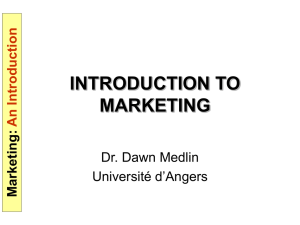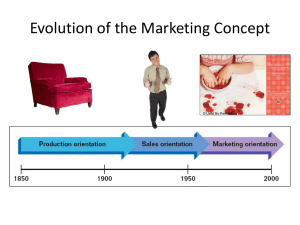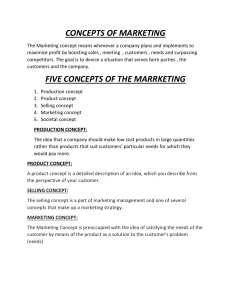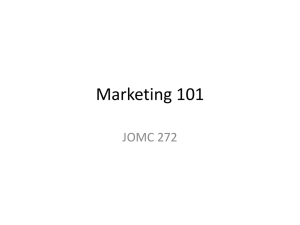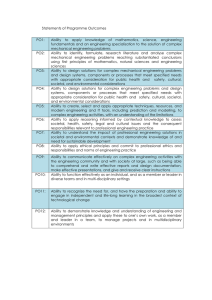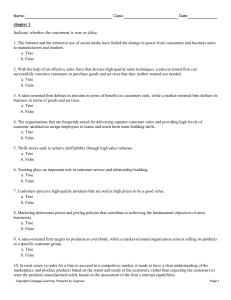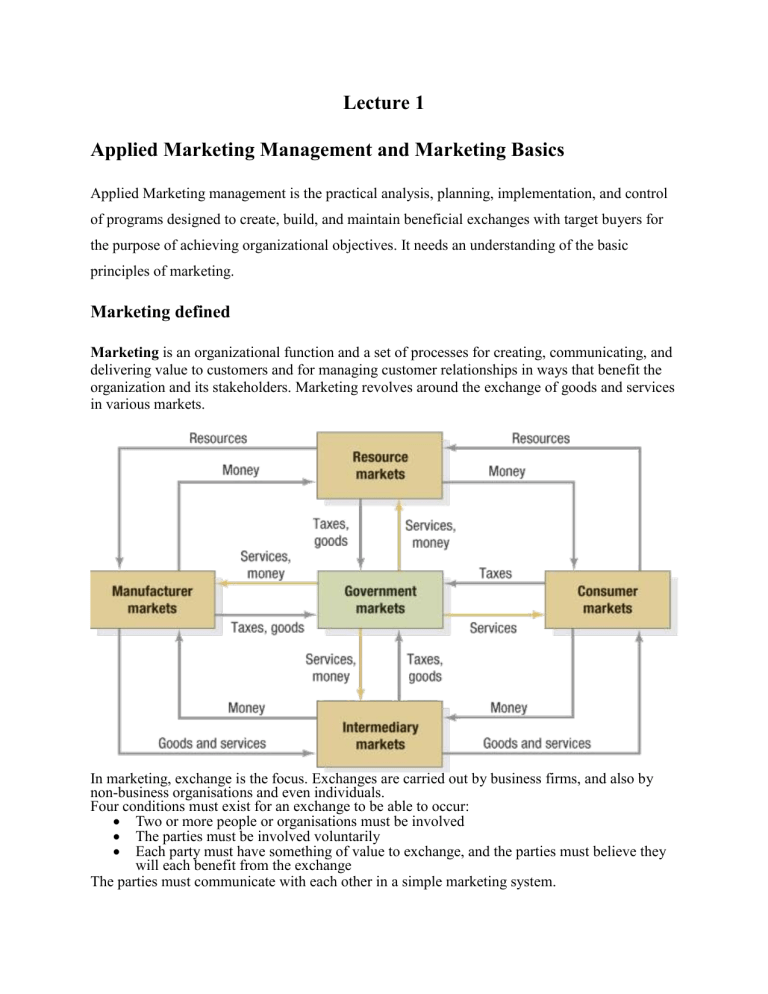
Lecture 1 Applied Marketing Management and Marketing Basics Applied Marketing management is the practical analysis, planning, implementation, and control of programs designed to create, build, and maintain beneficial exchanges with target buyers for the purpose of achieving organizational objectives. It needs an understanding of the basic principles of marketing. Marketing defined Marketing is an organizational function and a set of processes for creating, communicating, and delivering value to customers and for managing customer relationships in ways that benefit the organization and its stakeholders. Marketing revolves around the exchange of goods and services in various markets. In marketing, exchange is the focus. Exchanges are carried out by business firms, and also by non-business organisations and even individuals. Four conditions must exist for an exchange to be able to occur: Two or more people or organisations must be involved The parties must be involved voluntarily Each party must have something of value to exchange, and the parties must believe they will each benefit from the exchange The parties must communicate with each other in a simple marketing system. A simple marketing system Marketing is a process by which companies create value for customers and build strong customer relationships to capture value from customers in return Kotler and Armstrong (2013) Products and services are the value that companies create to give value to customers. A product is a set of basic real (tangible) and symbolic (intangible) attributes assembled in and which can be offered obtained and consumed in order to satisfy wants or/and needs. Products are identifiable in terms of size, price, appearance, and performance. They can be in the form of an be object, service, place, person, or an idea. In marketing the product is usually assigned a brand name. A brand is a name and/or a mark intended to identify the product of one seller or group of sellers and differentiate it from competing products. The marketing discipline over time Marketing Management Orientations/Philosophies/Concepts These are ways of thinking that guide the selection of marketing strategy. The concepts also represent the evolution or development of marketing over time. Productio n concept Product concept Selling concept Marketing concept Societal concept Production concept is the idea that consumers will favor products that are available or highly affordable Product concept is the idea that consumers will favor products that offer the most quality, performance, and features. Organization should therefore devote its energy to making continuous product improvements. Selling concept is the idea that consumers will not buy enough of the firm’s products unless it undertakes a large scale selling and promotion effort Marketing concept is the idea that achieving organizational goals depends on knowing the needs and wants of the target markets and delivering the desired satisfactions better than competitors do Societal marketing concept is the idea that a company should make good marketing decisions by considering consumers’ wants the company’s requirements, consumers’ long-term interests, and society’s long-run interests Holistic Marketing Decisions Marketing decisions need to consider the following if ever they are to be all encompassing The changing marketplace Markets are ever changing. Below is a summary of some of the notable changes that have characterized modern markets. Marketing managers need to realize these changes and incorporate them in their marketing efforts Information technology Globalization Deregulation Privatization Competition Convergence Consumer resistance Retail transformation Understanding the Applied Marketing Management Process In applied marketing management, the process below need to be understood. . • Societal Marketing Orientation • Understanding the marketplace . . • Planning • Implementation . • Connection with customers
